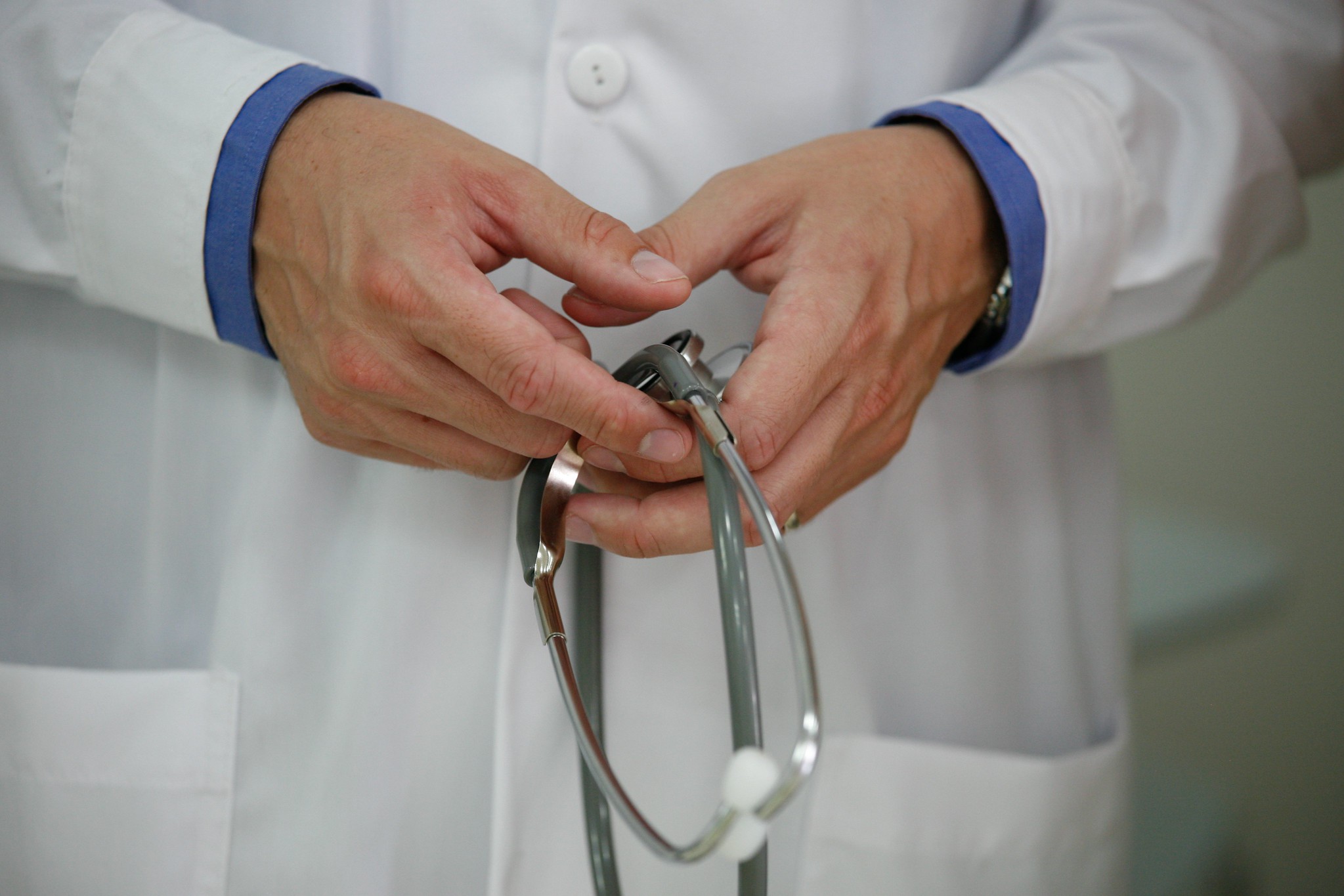The night before my white coat ceremony in mid-September, I took a drive around Worcester to clear my head. The windows were down, and I could feel the breeze on my face as my car picked up speed along Route 9. Thoughts swept through my mind of the Oath of Maimonides, a traditional oath for physicians, that I would take at the white coat ceremony the next afternoon: “Thy eternal providence has appointed me to watch over the life and death of my fellow human beings.” I didn’t know what an eternal providence was and, even if I did, had it really appointed me?
It was late, nearly 10 p.m., and I was only a minute or two away from home. The night smelled faintly of smoke as I rolled up to a red light and came to a stop behind an ambulance probably on its way to the UMass Emergency Department. I peered through the small back window to see an elderly man in a stretcher looking back at me: a single illuminated face in the darkness. He appeared to be around 70 years old, calm and not in any visible pain. Maybe he could see me, or maybe he couldn’t, but time stopped as we faced each other on that warm September night. I felt a symbolic turning point. I’m not a particularly spiritual person, but this had eternal providence written all over it. My journey sat on the road before me, and I remembered part of the oath: “May I never see in the patient anything but a fellow creature in pain.”
Standing in a sea of classmates the next day, feeling undeserving and unprepared, I took the oath with his face in mind.
Now that my first year of medical school draws to a close, I routinely ask myself, “Am I better prepared to care for my friend in the ambulance now?” I disassembled a human body and put it back together again. I memorized the arteries of the brain and held the sciatic nerve in my fingers as I traced it to its emergence from the spinal cord. I learned to talk to patients about smoking cessation, opioid use disorder and alcoholism all while being watched and critiqued by teachers and classmates. Yet, when that patient’s face pops into my mind, illuminated and framed by the ambulance window, the feelings of unpreparedness drown any tangible learning.
Like most medical students, I constantly wish to be steps ahead and never feel satisfied with my progress as it stands in the moment. I wonder, “Will there ever be a day when I feel prepared to care for this friend of mine?” His presence looms large in my mind as a representation of my future patients and the trust my future patients will ultimately bestow upon me. He is a manifestation of my worries.
Amidst my long nights in the library and battles to find more space in my brain for extraneous (but high yield!) facts, I learned the endless striving of medicine. Similar to the SketchyMedical facts that I cannot place or names of arteries that I cannot remember, there will always be illnesses that deceive and patients whom I cannot successfully treat. But when I experience these feelings of self-doubt, “Grant me strength, time and opportunity, always to correct what I have acquired: always to extend its domain.”
So, I return to that patient at the red light once more. I doubt I will ever find the feeling of preparedness that I seek, but in my efforts, “knowledge is immense, and the spirit of man can extend infinitely.”
“Thy eternal providence has appointed me to watch over the life and death of my fellow human beings. May the love for my art actuate me at all times; may neither avarice nor miserliness, nor thirst for glory, or for great reputation engage my mind; for the enemies of truth and philanthropy could easily deceive me and make me forgetful of my lofty aim of doing good to my patients. May I never see in the patient anything but a fellow creature of pain. Grant me strength, time, and opportunity, always to correct what I have acquired, always to extend its domain; for knowledge is immense and the spirit of man can extend infinitely to enrich itself daily with new requirements. Today we can discover our errors of yesterday and tomorrow we may obtain a new light on what we think ourselves sure of today. I have been appointed to watch over the life and death of my fellow human beings. Here am I ready for my vocation, and now I turn unto my calling.”
Image Credit: “The Stethoscope” (CC BY-NC 2.0) by Alex E. Proimos

